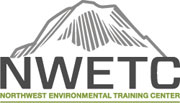
Attendees will receive a course manual containing workshop proceedings and reference material.
This hands-on course is intended for anyone who needs to write QAPPs for water quality projects, without spending excessive hours writing and revising an unnecessarily complicated planning document. Attendees will learn and become comfortable with the concepts, structures, and background materials needed for composing the QAPP, and the tools to turn what might be an overwhelming task into one that can be completed in a reasonable amount of time with a reasonable amount of effort.
With the instructor’s help, participants will perform customized exercises, working through one or more different QAPP templates that are provided to meet individual student needs. The instructor will share tips and tricks that go far beyond available on-line guidance; students will learn how to correctly and efficiently complete the template. This hands-on approach, with plenty of opportunities for questions and personalized answers, will help students come up to speed quickly without the doubts, slow responses, and steep learning curves inherent in self-taught or even the best on-line class systems.
Students are expected to come to the class with a basic understanding of the role of quality assurance and quality control in developing and conducting an environmental program for water quality monitoring. Comfort in using programs such as Microsoft Word and Excel will be beneficial in getting the most of the class.
If you have any trouble registering please call (425) 270-3274 ext 103
Please wait to receive a course confirmation email, roughly one month prior to the class, before making any travel arrangements.
This course is recommended for representatives of Native American Tribes, state environmental regulators and personnel who develop, review, implement or use QAPPs, or personnel who have to communicate QAPPs, including, but not limited to remedial project managers, on-scene coordinators, site assessment managers, RCRA facilty managers, enforcement personnel, state and tribal regulators, quality assurance personnel, contractors and oversight officers, field task managers, and laboratory personnel
